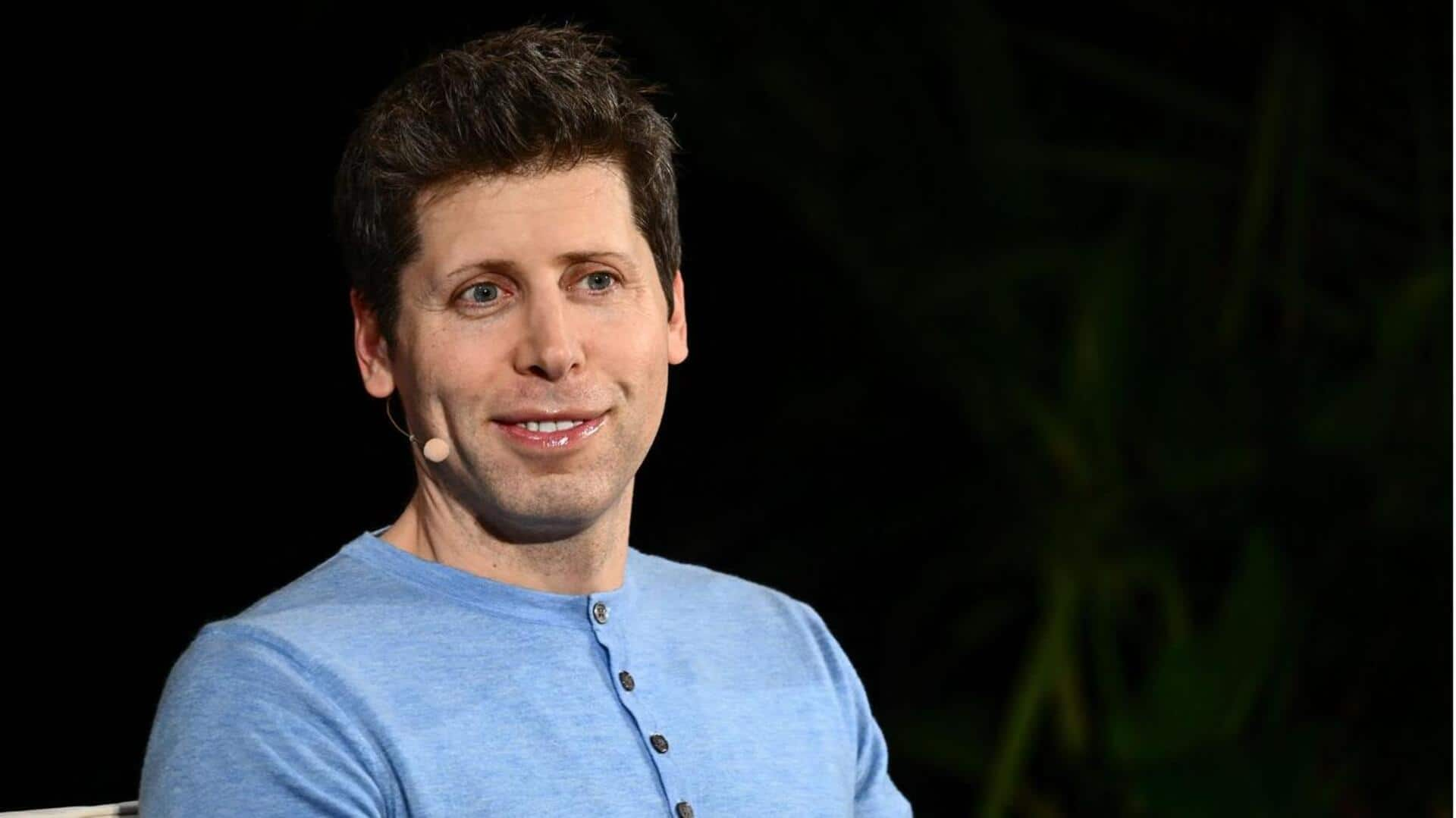
Nuclear fusion necessary to meet AI's energy needs: Sam Altman
What's the story
Artificial intelligence (AI) is becoming a voracious consumer of energy, potentially leading to a surge in electricity demand that could put pressure on our power grid.
Sam Altman, the leader of OpenAI and the mind behind ChatGPT, sees nuclear fusion as a potential answer to this growing problem.
For reference, Altman has put significant investment into fusion technology, convinced it could meet the enormous power requirements of future AI systems.
Solution
Nuclear fusion: A potential long-term solution for AI's energy hunger
Despite Altman's enthusiasm, experts caution that nuclear fusion, a process that combines two or more atoms to form a heavier one for releasing substantial energy, is still many years away from being commercially viable.
Aneeqa Khan, a research fellow in nuclear fusion at the University of Manchester, stated that "recreating the conditions in the center of the sun on Earth is a huge challenge."
She proposed using existing low-carbon technologies such as fission and renewables in the interim.
Possibility
AI industry's climate action: Pipe dream or feasible reality?
Alex de Vries, a data scientist from Vrije Universiteit Amsterdam, criticized the AI industry's approach to climate action as "wishful thinking."
He argued for focusing on current resources and capabilities rather than betting on future innovations.
According to predictions by the International Energy Agency (IEA), electricity consumption from data centers, digital currencies, and AI could double within two years.
De Vries pointed out that an AI-backed online search could consume at least ten times more energy than a standard search.
Problem
Tech giants worried about meeting AI's growing power demands
At CERAWeek by S&P Global, an energy industry conference held in Houston, tech companies voiced their worries about meeting the increasing power demands of AI.
Bill Gates emphasized that electricity is a key factor in determining the profitability of a data center.
Ernest Moniz, former US Energy Secretary, suggested that utilities might have to depend more on natural gas, coal, and nuclear plants to meet the rising demand.
Usage
AI's potential to address the climate crisis
Despite these energy challenges, AI companies argue that their technology can be instrumental in addressing the climate crisis.
A spokesperson from Microsoft stated that "AI will be a powerful tool for advancing sustainability solutions."
The company is already leveraging AI to forecast weather, monitor pollution, map deforestation, and observe ice melt.
Moreover, a report commissioned by Google suggested that AI could help reduce up to 10% of global warming emissions.
Worries
Ethical implications in energy distribution for AI
Michael Khoo from Friends of the Earth, stressed the need for tough decisions about energy distribution.
He stated, "It can't simply be the richest people who get the energy first," highlighting the ethical implications in this debate.
This statement underscores the importance of fair resource distribution as AI's power demand continues to grow, adding another dimension to discussions about AI's role in future energy consumption and climate action.